afterLoad (455.8KB) (503μs)
afterInitialise (1.27MB) (43.77ms)
afterRoute (826.8KB) (20.22ms)
beforeRenderComponent com_tags (20.62KB) (223μs)
afterRenderComponent com_tags (1.83MB) (125ms)
afterDispatch (27.45KB) (14.12ms)
beforeRenderRawModule mod_articles_category (READ MORE...) (423.86KB) (14.8ms)
Before Access::preloadComponents (all components) (50.9KB) (388μs)
After Access::preloadComponents (all components) (103.05KB) (6.58ms)
Before Access::getAssetRules (id:8 name:com_content) (840B) (19μs)
After Access::getAssetRules (id:8 name:com_content) (7.05KB) (42μs)
afterRenderRawModule mod_articles_category (READ MORE...) (5.63KB) (149ms)
beforeRenderRawModule mod_custom (BOOST YOUR IMMUNE DEFENSE) (6.45KB) (33μs)
afterRenderRawModule mod_custom (BOOST YOUR IMMUNE DEFENSE) (3.8KB) (184μs)
beforeRenderRawModule mod_tags_popular (Search) (2.36KB) (15μs)
afterRenderRawModule mod_tags_popular (Search) (18.22KB) (170ms)
beforeRenderRawModule mod_custom (Get additionel and more detailed knowledge ) (816B) (36μs)
afterRenderRawModule mod_custom (Get additionel and more detailed knowledge ) (1.55KB) (53μs)
beforeRenderRawModule mod_custom (Overview of vitamins, minerals, and essential fatty acids) (768B) (12μs)
afterRenderRawModule mod_custom (Overview of vitamins, minerals, and essential fatty acids) (960B) (23μs)
beforeRenderRawModule mod_custom (Q10 goes by many names) (608B) (9μs)
afterRenderRawModule mod_custom (Q10 goes by many names) (928B) (19μs)
beforeRenderRawModule mod_custom (Check this before you buy a Q10 product) (752B) (9μs)
afterRenderRawModule mod_custom (Check this before you buy a Q10 product) (944B) (17μs)
beforeRenderRawModule mod_custom (Are you taking supplements) (736B) (9μs)
afterRenderRawModule mod_custom (Are you taking supplements) (1.03KB) (18μs)
beforeRenderRawModule mod_custom (Weight loss that works) (736B) (8μs)
afterRenderRawModule mod_custom (Weight loss that works) (1.03KB) (18μs)
beforeRenderRawModule mod_custom (Antiaging) (720B) (9μs)
afterRenderRawModule mod_custom (Antiaging) (912B) (17μs)
beforeRenderRawModule mod_menu (Are you getting enough vitamins and minerals?) (2.5KB) (11μs)
afterRenderRawModule mod_menu (Are you getting enough vitamins and minerals?) (22.39KB) (1.58ms)
beforeRenderRawModule mod_menu (The key to increased well-being) (736B) (19μs)
afterRenderRawModule mod_menu (The key to increased well-being) (17.83KB) (1.59ms)
beforeRenderRawModule mod_menu (Did you know.....) (720B) (21μs)
afterRenderRawModule mod_menu (Did you know.....) (25.52KB) (334μs)
beforeRenderRawModule mod_custom (Useful Links) (1.06KB) (14μs)
afterRenderRawModule mod_custom (Useful Links) (1.02KB) (31μs)
beforeRenderRawModule mod_custom (Chronic fatigue tied Alan to his bed but Q10 capsules saved him:) (244.28KB) (3.11ms)
afterRenderRawModule mod_custom (Chronic fatigue tied Alan to his bed but Q10 capsules saved him:) (1.06KB) (43μs)
beforeRenderModule mod_custom (Chronic fatigue tied Alan to his bed but Q10 capsules saved him:) (768B) (4μs)
afterRenderModule mod_custom (Chronic fatigue tied Alan to his bed but Q10 capsules saved him:) (1.3KB) (73μs)
beforeRenderRawModule mod_custom (Cholesterol-lowering without side effects:) (368B) (12μs)
afterRenderRawModule mod_custom (Cholesterol-lowering without side effects:) (1.06KB) (23μs)
beforeRenderModule mod_custom (Cholesterol-lowering without side effects:) (752B) (2μs)
afterRenderModule mod_custom (Cholesterol-lowering without side effects:) (1.28KB) (32μs)
beforeRenderModule mod_articles_category (READ MORE...) (20.82KB) (1.36ms)
afterRenderModule mod_articles_category (READ MORE...) (1.25KB) (53μs)
beforeRenderModule mod_custom (BOOST YOUR IMMUNE DEFENSE) (6.81KB) (14μs)
afterRenderModule mod_custom (BOOST YOUR IMMUNE DEFENSE) (1.28KB) (26μs)
beforeRenderModule mod_tags_popular (Search) (1.98KB) (12μs)
afterRenderModule mod_tags_popular (Search) (1.27KB) (23μs)
beforeRenderModule mod_custom (Get additionel and more detailed knowledge ) (1.17KB) (10μs)
afterRenderModule mod_custom (Get additionel and more detailed knowledge ) (1.3KB) (22μs)
beforeRenderModule mod_custom (Overview of vitamins, minerals, and essential fatty acids) (384B) (10μs)
afterRenderModule mod_custom (Overview of vitamins, minerals, and essential fatty acids) (1.31KB) (21μs)
beforeRenderModule mod_custom (Q10 goes by many names) (208B) (9μs)
afterRenderModule mod_custom (Q10 goes by many names) (1.27KB) (21μs)
beforeRenderModule mod_custom (Check this before you buy a Q10 product) (352B) (9μs)
afterRenderModule mod_custom (Check this before you buy a Q10 product) (1.28KB) (21μs)
beforeRenderModule mod_custom (Are you taking supplements) (352B) (9μs)
afterRenderModule mod_custom (Are you taking supplements) (1.28KB) (22μs)
beforeRenderModule mod_custom (Weight loss that works) (336B) (8μs)
afterRenderModule mod_custom (Weight loss that works) (1.27KB) (20μs)
beforeRenderModule mod_custom (Antiaging) (336B) (9μs)
afterRenderModule mod_custom (Antiaging) (3.77KB) (21μs)
beforeRenderModule mod_menu (Are you getting enough vitamins and minerals?) (2.13KB) (11μs)
afterRenderModule mod_menu (Are you getting enough vitamins and minerals?) (1.3KB) (21μs)
beforeRenderModule mod_menu (The key to increased well-being) (352B) (10μs)
afterRenderModule mod_menu (The key to increased well-being) (1.28KB) (21μs)
beforeRenderModule mod_menu (Did you know.....) (336B) (10μs)
afterRenderModule mod_menu (Did you know.....) (1.27KB) (20μs)
beforeRenderModule mod_custom (Useful Links) (1.44KB) (8μs)
afterRenderModule mod_custom (Useful Links) (1.27KB) (21μs)
beforeRenderRawModule mod_menu (Main Menu - English) (29.14KB) (1.71ms)
afterRenderRawModule mod_menu (Main Menu - English) (192.45KB) (2.48ms)
beforeRenderModule mod_menu (Main Menu - English) (720B) (5μs)
afterRenderModule mod_menu (Main Menu - English) (4.86KB) (66μs)
beforeRenderRawModule mod_languages (Sprogskift) (3.94KB) (18μs)
afterRenderRawModule mod_languages (Sprogskift) (22.66KB) (4.59ms)
beforeRenderModule mod_languages (Sprogskift) (720B) (6μs)
afterRenderModule mod_languages (Sprogskift) (5.31KB) (22μs)
beforeRenderRawModule mod_finder () (6.34KB) (11μs)
afterRenderRawModule mod_finder () (128.59KB) (5.37ms)
beforeRenderModule mod_finder () (704B) (5μs)
afterRenderModule mod_finder () (3.29KB) (33μs)
beforeRenderRawModule mod_custom () (6.62KB) (140μs)
afterRenderRawModule mod_custom () (22.61KB) (2.91ms)
beforeRenderModule mod_custom () (704B) (6μs)
afterRenderModule mod_custom () (1.23KB) (53μs)
beforeRenderRawModule mod_menu (Main Menu - English) (5.07KB) (115μs)
afterRenderRawModule mod_menu (Main Menu - English) (6.3KB) (848μs)
beforeRenderModule mod_menu (Main Menu - English) (720B) (4μs)
afterRenderModule mod_menu (Main Menu - English) (1.25KB) (47μs)
beforeRenderRawModule mod_languages (Sprogskift Mobil) (912B) (16μs)
afterRenderRawModule mod_languages (Sprogskift Mobil) (3.89KB) (2.88ms)
beforeRenderModule mod_languages (Sprogskift Mobil) (720B) (4μs)
afterRenderModule mod_languages (Sprogskift Mobil) (1.27KB) (1.16ms)
beforeRenderRawModule mod_finder () (2.3KB) (12μs)
afterRenderRawModule mod_finder () (6.29KB) (1.34ms)
beforeRenderModule mod_finder () (704B) (5μs)
afterRenderModule mod_finder () (1.23KB) (50μs)
beforeRenderRawModule mod_custom () (8.66KB) (180μs)
afterRenderRawModule mod_custom () (904B) (139μs)
beforeRenderModule mod_custom () (704B) (3μs)
afterRenderModule mod_custom () (2.43KB) (24μs)
beforeRenderRawModule mod_custom () (688B) (83μs)
afterRenderRawModule mod_custom () (896B) (96μs)
beforeRenderModule mod_custom () (704B) (2μs)
afterRenderModule mod_custom () (2.71KB) (22μs)
afterRender (349.74KB) (17.21ms)
| 1 x afterRenderRawModule mod_tags_popular (Search) (18.22KB) (28.47%) | 169.55ms |
| 1 x afterRenderRawModule mod_articles_category (READ MORE...) (5.63KB) (25.06%) | 149.22ms |
| 1 x afterRenderComponent com_tags (1.83MB) (20.95%) | 124.72ms |
| 1 x afterInitialise (1.27MB) (7.35%) | 43.77ms |
| 1 x afterRoute (826.8KB) (3.4%) | 20.22ms |
| 1 x afterRender (349.74KB) (2.89%) | 17.21ms |
| 1 x beforeRenderRawModule mod_articles_category (READ MORE...) (423.86KB) (2.49%) | 14.80ms |
| 1 x afterDispatch (27.45KB) (2.37%) | 14.12ms |
| 1 x After Access::preloadComponents (all components) (103.05KB) (1.1%) | 6.58ms |
| 1 x afterRenderRawModule mod_finder () (128.59KB) (0.9%) | 5.37ms |
| 1 x afterRenderRawModule mod_languages (Sprogskift) (22.66KB) (0.77%) | 4.59ms |
| 1 x beforeRenderRawModule mod_custom (Chronic fatigue tied Alan to his bed but Q10 capsules saved him:) (244.28KB) (0.52%) | 3.11ms |
| 1 x afterRenderRawModule mod_custom () (22.61KB) (0.49%) | 2.91ms |
| 1 x afterRenderRawModule mod_languages (Sprogskift Mobil) (3.89KB) (0.48%) | 2.88ms |
| 1 x afterRenderRawModule mod_menu (Main Menu - English) (192.45KB) (0.42%) | 2.48ms |
| 1 x beforeRenderRawModule mod_menu (Main Menu - English) (29.14KB) (0.29%) | 1.71ms |
| 1 x afterRenderRawModule mod_menu (The key to increased well-being) (17.83KB) (0.27%) | 1.59ms |
| 1 x afterRenderRawModule mod_menu (Are you getting enough vitamins and minerals?) (22.39KB) (0.27%) | 1.58ms |
| 1 x beforeRenderModule mod_articles_category (READ MORE...) (20.82KB) (0.23%) | 1.36ms |
| 1 x afterRenderRawModule mod_finder () (6.29KB) (0.22%) | 1.34ms |
| 1 x afterRenderModule mod_languages (Sprogskift Mobil) (1.27KB) (0.19%) | 1.16ms |
| 1 x afterRenderRawModule mod_menu (Main Menu - English) (6.3KB) (0.14%) | 848μs |
| 1 x afterLoad (455.8KB) (0.08%) | 503μs |
| 1 x Before Access::preloadComponents (all components) (50.9KB) (0.07%) | 388μs |
| 1 x afterRenderRawModule mod_menu (Did you know.....) (25.52KB) (0.06%) | 334μs |
| 1 x beforeRenderComponent com_tags (20.62KB) (0.04%) | 223μs |
| 1 x afterRenderRawModule mod_custom (BOOST YOUR IMMUNE DEFENSE) (3.8KB) (0.03%) | 184μs |
| 1 x beforeRenderRawModule mod_custom () (8.66KB) (0.03%) | 180μs |
| 1 x beforeRenderRawModule mod_custom () (6.62KB) (0.02%) | 140μs |
| 1 x afterRenderRawModule mod_custom () (904B) (0.02%) | 139μs |
| 1 x beforeRenderRawModule mod_menu (Main Menu - English) (5.07KB) (0.02%) | 115μs |
| 1 x afterRenderRawModule mod_custom () (896B) (0.02%) | 96μs |
| 1 x beforeRenderRawModule mod_custom () (688B) (0.01%) | 83μs |
| 1 x afterRenderModule mod_custom (Chronic fatigue tied Alan to his bed but Q10 capsules saved him:) (1.3KB) (0.01%) | 73μs |
| 1 x afterRenderModule mod_menu (Main Menu - English) (4.86KB) (0.01%) | 66μs |
| 1 x afterRenderRawModule mod_custom (Get additionel and more detailed knowledge ) (1.55KB) (0.01%) | 53μs |
| 1 x afterRenderModule mod_articles_category (READ MORE...) (1.25KB) (0.01%) | 53μs |
| 1 x afterRenderModule mod_custom () (1.23KB) (0.01%) | 53μs |
| 1 x afterRenderModule mod_finder () (1.23KB) (0.01%) | 50μs |
| 1 x afterRenderModule mod_menu (Main Menu - English) (1.25KB) (0.01%) | 47μs |
| 1 x afterRenderRawModule mod_custom (Chronic fatigue tied Alan to his bed but Q10 capsules saved him:) (1.06KB) (0.01%) | 43μs |
| 1 x After Access::getAssetRules (id:8 name:com_content) (7.05KB) (0.01%) | 42μs |
| 1 x beforeRenderRawModule mod_custom (Get additionel and more detailed knowledge ) (816B) (0.01%) | 36μs |
| 1 x afterRenderModule mod_finder () (3.29KB) (0.01%) | 33μs |
| 1 x beforeRenderRawModule mod_custom (BOOST YOUR IMMUNE DEFENSE) (6.45KB) (0.01%) | 33μs |
| 1 x afterRenderModule mod_custom (Cholesterol-lowering without side effects:) (1.28KB) (0.01%) | 32μs |
| 1 x afterRenderRawModule mod_custom (Useful Links) (1.02KB) (0.01%) | 31μs |
| 1 x afterRenderModule mod_custom (BOOST YOUR IMMUNE DEFENSE) (1.28KB) (0%) | 26μs |
| 1 x afterRenderModule mod_custom () (2.43KB) (0%) | 24μs |
| 1 x afterRenderRawModule mod_custom (Cholesterol-lowering without side effects:) (1.06KB) (0%) | 23μs |
| 1 x afterRenderModule mod_tags_popular (Search) (1.27KB) (0%) | 23μs |
| 1 x afterRenderRawModule mod_custom (Overview of vitamins, minerals, and essential fatty acids) (960B) (0%) | 23μs |
| 1 x afterRenderModule mod_custom (Are you taking supplements) (1.28KB) (0%) | 22μs |
| 1 x afterRenderModule mod_custom (Get additionel and more detailed knowledge ) (1.3KB) (0%) | 22μs |
| 1 x afterRenderModule mod_languages (Sprogskift) (5.31KB) (0%) | 22μs |
| 1 x afterRenderModule mod_custom () (2.71KB) (0%) | 22μs |
| 1 x beforeRenderRawModule mod_menu (Did you know.....) (720B) (0%) | 21μs |
| 1 x afterRenderModule mod_custom (Overview of vitamins, minerals, and essential fatty acids) (1.31KB) (0%) | 21μs |
| 1 x afterRenderModule mod_custom (Q10 goes by many names) (1.27KB) (0%) | 21μs |
| 1 x afterRenderModule mod_custom (Check this before you buy a Q10 product) (1.28KB) (0%) | 21μs |
| 1 x afterRenderModule mod_custom (Antiaging) (3.77KB) (0%) | 21μs |
| 1 x afterRenderModule mod_menu (Are you getting enough vitamins and minerals?) (1.3KB) (0%) | 21μs |
| 1 x afterRenderModule mod_menu (The key to increased well-being) (1.28KB) (0%) | 21μs |
| 1 x afterRenderModule mod_custom (Useful Links) (1.27KB) (0%) | 21μs |
| 1 x afterRenderModule mod_custom (Weight loss that works) (1.27KB) (0%) | 20μs |
| 1 x afterRenderModule mod_menu (Did you know.....) (1.27KB) (0%) | 20μs |
| 1 x afterRenderRawModule mod_custom (Q10 goes by many names) (928B) (0%) | 19μs |
| 1 x beforeRenderRawModule mod_menu (The key to increased well-being) (736B) (0%) | 19μs |
| 1 x Before Access::getAssetRules (id:8 name:com_content) (840B) (0%) | 19μs |
| 1 x afterRenderRawModule mod_custom (Are you taking supplements) (1.03KB) (0%) | 18μs |
| 1 x afterRenderRawModule mod_custom (Weight loss that works) (1.03KB) (0%) | 18μs |
| 1 x beforeRenderRawModule mod_languages (Sprogskift) (3.94KB) (0%) | 18μs |
| 1 x afterRenderRawModule mod_custom (Check this before you buy a Q10 product) (944B) (0%) | 17μs |
| 1 x afterRenderRawModule mod_custom (Antiaging) (912B) (0%) | 17μs |
| 1 x beforeRenderRawModule mod_languages (Sprogskift Mobil) (912B) (0%) | 16μs |
| 1 x beforeRenderRawModule mod_tags_popular (Search) (2.36KB) (0%) | 15μs |
| 1 x beforeRenderModule mod_custom (BOOST YOUR IMMUNE DEFENSE) (6.81KB) (0%) | 14μs |
| 1 x beforeRenderRawModule mod_custom (Useful Links) (1.06KB) (0%) | 14μs |
| 1 x beforeRenderRawModule mod_custom (Overview of vitamins, minerals, and essential fatty acids) (768B) (0%) | 12μs |
| 1 x beforeRenderRawModule mod_custom (Cholesterol-lowering without side effects:) (368B) (0%) | 12μs |
| 1 x beforeRenderModule mod_tags_popular (Search) (1.98KB) (0%) | 12μs |
| 1 x beforeRenderRawModule mod_finder () (2.3KB) (0%) | 12μs |
| 1 x beforeRenderRawModule mod_finder () (6.34KB) (0%) | 11μs |
| 1 x beforeRenderRawModule mod_menu (Are you getting enough vitamins and minerals?) (2.5KB) (0%) | 11μs |
| 1 x beforeRenderModule mod_menu (Are you getting enough vitamins and minerals?) (2.13KB) (0%) | 11μs |
| 3 x beforeRenderModule mod_custom () (704B) (0%) | 11μs |
| 1 x beforeRenderModule mod_custom (Get additionel and more detailed knowledge ) (1.17KB) (0%) | 10μs |
| 1 x beforeRenderModule mod_custom (Overview of vitamins, minerals, and essential fatty acids) (384B) (0%) | 10μs |
| 1 x beforeRenderModule mod_menu (The key to increased well-being) (352B) (0%) | 10μs |
| 1 x beforeRenderModule mod_menu (Did you know.....) (336B) (0%) | 10μs |
| 2 x beforeRenderModule mod_finder () (704B) (0%) | 10μs |
| 1 x beforeRenderRawModule mod_custom (Q10 goes by many names) (608B) (0%) | 9μs |
| 1 x beforeRenderRawModule mod_custom (Are you taking supplements) (736B) (0%) | 9μs |
| 1 x beforeRenderRawModule mod_custom (Antiaging) (720B) (0%) | 9μs |
| 1 x beforeRenderModule mod_custom (Q10 goes by many names) (208B) (0%) | 9μs |
| 1 x beforeRenderModule mod_custom (Check this before you buy a Q10 product) (352B) (0%) | 9μs |
| 1 x beforeRenderModule mod_custom (Antiaging) (336B) (0%) | 9μs |
| 2 x beforeRenderModule mod_menu (Main Menu - English) (720B) (0%) | 9μs |
| 1 x beforeRenderRawModule mod_custom (Check this before you buy a Q10 product) (752B) (0%) | 9μs |
| 1 x beforeRenderModule mod_custom (Are you taking supplements) (352B) (0%) | 9μs |
| 1 x beforeRenderRawModule mod_custom (Weight loss that works) (736B) (0%) | 8μs |
| 1 x beforeRenderModule mod_custom (Useful Links) (1.44KB) (0%) | 8μs |
| 1 x beforeRenderModule mod_custom (Weight loss that works) (336B) (0%) | 8μs |
| 1 x beforeRenderModule mod_languages (Sprogskift) (720B) (0%) | 6μs |
| 1 x beforeRenderModule mod_custom (Chronic fatigue tied Alan to his bed but Q10 capsules saved him:) (768B) (0%) | 4μs |
| 1 x beforeRenderModule mod_languages (Sprogskift Mobil) (720B) (0%) | 4μs |
| 1 x beforeRenderModule mod_custom (Cholesterol-lowering without side effects:) (752B) (0%) | 2μs |
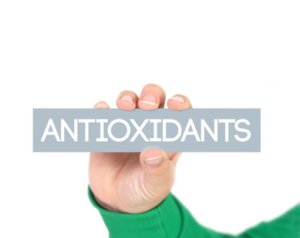 It is widely established that women of childbearing age have high levels of estrogen that protect them against cardiovascular disease. However, if they have type 1 diabetes, having high estrogen levels actually increases their risk of these diseases. A group of scientists is therefore planning to investigate whether nutritional supplements with antioxidants can protect diabetics against cardiovascular disease and the premature death caused by these ailments.
It is widely established that women of childbearing age have high levels of estrogen that protect them against cardiovascular disease. However, if they have type 1 diabetes, having high estrogen levels actually increases their risk of these diseases. A group of scientists is therefore planning to investigate whether nutritional supplements with antioxidants can protect diabetics against cardiovascular disease and the premature death caused by these ailments.







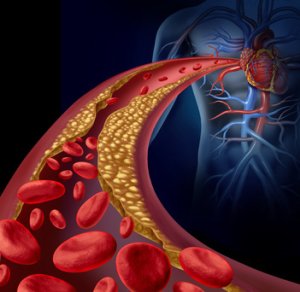 Atherosclerosis is one of the leading causes of death in the Western world, and the heart is particularly vulnerable. According to a study from the University of Birmingham, Alabama (USA), foods that are rich in potassium such as bananas, potatoes, avocado, and almonds protect against this disease, which takes years to develop. Beware that too much salt and the use of diuretics may deplete the body’s potassium stores.
Atherosclerosis is one of the leading causes of death in the Western world, and the heart is particularly vulnerable. According to a study from the University of Birmingham, Alabama (USA), foods that are rich in potassium such as bananas, potatoes, avocado, and almonds protect against this disease, which takes years to develop. Beware that too much salt and the use of diuretics may deplete the body’s potassium stores.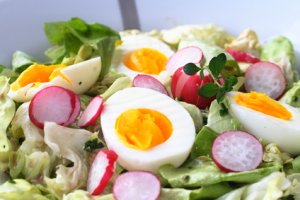 A new study shows that adding eggs to your mixed salad increases the uptake of vitamin E from the vegetables, so don’t let your fear of fat and cholesterol keep you from consuming eggs. Eggs (yoke and white) contain a multitude of nutrients that are beneficial for your cardiovascular system and blood sugar.
A new study shows that adding eggs to your mixed salad increases the uptake of vitamin E from the vegetables, so don’t let your fear of fat and cholesterol keep you from consuming eggs. Eggs (yoke and white) contain a multitude of nutrients that are beneficial for your cardiovascular system and blood sugar.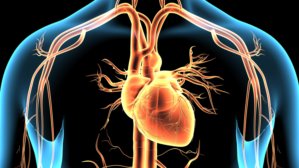 On a global scale, cardiovascular disease and coronary occlusion cause more deaths than any other factor. However, according to a large meta-analysis from Harvard T. H. Chan School of Public Health and Brigham and Women’s Hospital in Boston, USA, people who take
On a global scale, cardiovascular disease and coronary occlusion cause more deaths than any other factor. However, according to a large meta-analysis from Harvard T. H. Chan School of Public Health and Brigham and Women’s Hospital in Boston, USA, people who take 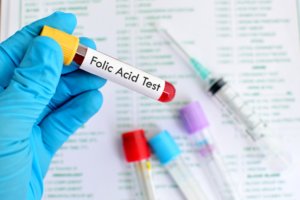 Hypertension is a growing problem. Worldwide, it causes more premature deaths than any other risk factor. Chinese researchers have now found that supplementation with a combination of folic acid and anti-hypertensive medicine lowers the risk of stroke by nearly 75 percent. It is important to underline that many people have elevated blood pressure without knowing about it, and many things can cause a
Hypertension is a growing problem. Worldwide, it causes more premature deaths than any other risk factor. Chinese researchers have now found that supplementation with a combination of folic acid and anti-hypertensive medicine lowers the risk of stroke by nearly 75 percent. It is important to underline that many people have elevated blood pressure without knowing about it, and many things can cause a 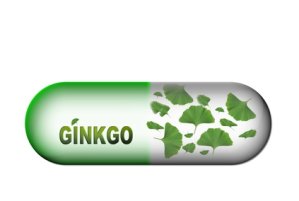 The plant extract Ginkgo biloba contains some biologically active compounds that improve circulation through blood-thinning and vessel-dilating actions. However, a study of 29 different Ginkgo biloba preparations revealed that only 10% of the investigated products actually contained Ginkgo extract. You can avoid this problem by only using Ginkgo biloba in the form of natural remedies, because they are registered as pharmaceutical drugs.
The plant extract Ginkgo biloba contains some biologically active compounds that improve circulation through blood-thinning and vessel-dilating actions. However, a study of 29 different Ginkgo biloba preparations revealed that only 10% of the investigated products actually contained Ginkgo extract. You can avoid this problem by only using Ginkgo biloba in the form of natural remedies, because they are registered as pharmaceutical drugs.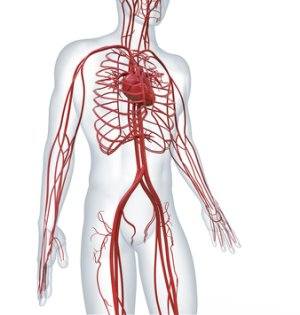 In a matter of four months only, large doses of
In a matter of four months only, large doses of 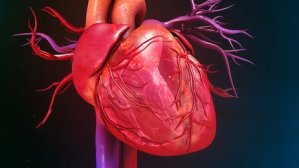 It is essential that your heart is able to pump optimally throughout life. A study from Medical College of Georgia, Augusta University, the United States, has just shown that a diet with low levels of
It is essential that your heart is able to pump optimally throughout life. A study from Medical College of Georgia, Augusta University, the United States, has just shown that a diet with low levels of  Omega-3 fatty acids belong to a group of polyunsaturated fatty acids. Their "omega-3" name indicates that they have a double bond at the third carbon atom in the middle carbon chain. Omega-3 fatty acids provide energy and constitute an important element in all cell membranes and various biochemical processes. The type known as ALA (alpha-linoleic acid) is essential, as the human body is unable to produce it. We depend on a dietary supply of this fatty acid. By means of enzymes, ALA is converted to EPA (eicosapentaenoic acid) and DHA (docosahexaenoic acid) and finally into some hormone-like substances named prostaglandins (E3).
Omega-3 fatty acids belong to a group of polyunsaturated fatty acids. Their "omega-3" name indicates that they have a double bond at the third carbon atom in the middle carbon chain. Omega-3 fatty acids provide energy and constitute an important element in all cell membranes and various biochemical processes. The type known as ALA (alpha-linoleic acid) is essential, as the human body is unable to produce it. We depend on a dietary supply of this fatty acid. By means of enzymes, ALA is converted to EPA (eicosapentaenoic acid) and DHA (docosahexaenoic acid) and finally into some hormone-like substances named prostaglandins (E3). Q10 is a lipid-soluble coenzyme that is found in all the body's cells, except for the red blood cells. Carbohydrate, fat, and protein get converted into energy by means of Q10 and the oxygen we breathe. This process takes place inside the small, cellular power stations called mitochondria. To begin with, Q10 contributes to storing the energy in a chemical form called ATP (adenosine triphosphate). After that, Q10 makes sure that the energy is released in step with the shifting energy requirement of the cells.
Q10 is a lipid-soluble coenzyme that is found in all the body's cells, except for the red blood cells. Carbohydrate, fat, and protein get converted into energy by means of Q10 and the oxygen we breathe. This process takes place inside the small, cellular power stations called mitochondria. To begin with, Q10 contributes to storing the energy in a chemical form called ATP (adenosine triphosphate). After that, Q10 makes sure that the energy is released in step with the shifting energy requirement of the cells.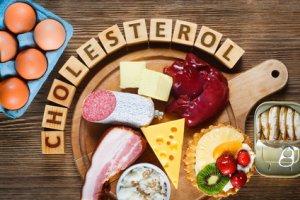 No matter how you twist and turn it, cholesterol is an essential substance, and we humans produce most of it ourselves. What is important is to make sure that the cholesterol we have in our blood does not oxidize, and that is something which
No matter how you twist and turn it, cholesterol is an essential substance, and we humans produce most of it ourselves. What is important is to make sure that the cholesterol we have in our blood does not oxidize, and that is something which 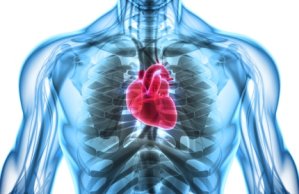
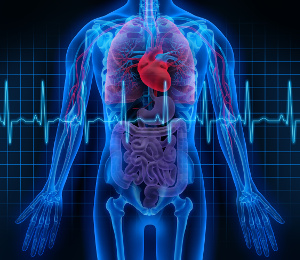 Cardiovascular diseases are widespread and one of the major causes of death. The risk is increased by factors such as ageing, diabetes, and overweight. One of the underlying causes is oxidative stress, which is an imbalance between free radicals and antioxidants.
Cardiovascular diseases are widespread and one of the major causes of death. The risk is increased by factors such as ageing, diabetes, and overweight. One of the underlying causes is oxidative stress, which is an imbalance between free radicals and antioxidants.  Selenium is a trace element that is found in all the cells of the body. An adult contains around 10-15 mg of selenium with the largest concentrations being found in the liver, kidneys, thyroid gland, sexual gland (gonads), and semen. Selenium supports over 30 different selenoproteins that have a number of different functions. Among these are five glutathione peroxidases (GSH-Px) that function as antioxidants, and three deiodinases that regulate the metabolism. Of all minerals, selenium is the one that holds the greatest antioxidant potential. It works in close collaboration with vitamin E to prevent oxidative damage to cell membranes, lipids, and DNA. Selenium and sulfur bear great chemical resemblances, but sulfur is not an antioxidant and has other functions in the body.
Selenium is a trace element that is found in all the cells of the body. An adult contains around 10-15 mg of selenium with the largest concentrations being found in the liver, kidneys, thyroid gland, sexual gland (gonads), and semen. Selenium supports over 30 different selenoproteins that have a number of different functions. Among these are five glutathione peroxidases (GSH-Px) that function as antioxidants, and three deiodinases that regulate the metabolism. Of all minerals, selenium is the one that holds the greatest antioxidant potential. It works in close collaboration with vitamin E to prevent oxidative damage to cell membranes, lipids, and DNA. Selenium and sulfur bear great chemical resemblances, but sulfur is not an antioxidant and has other functions in the body. It is commonly known that fish oil with its high content of the two omega-3 fatty acids EPA and DHA helps prevent atherosclerosis. According to a new international study, it appears to be DHA that has the major effect. This new insight, which has surprised the scientists, is relevant to public health because cardiovascular disease continues to be the leading cause of death.
It is commonly known that fish oil with its high content of the two omega-3 fatty acids EPA and DHA helps prevent atherosclerosis. According to a new international study, it appears to be DHA that has the major effect. This new insight, which has surprised the scientists, is relevant to public health because cardiovascular disease continues to be the leading cause of death. Lack of
Lack of 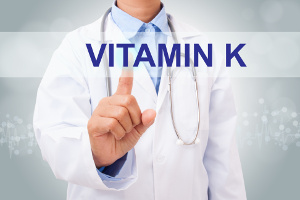 Cardiovascular diseases are the leading cause of death and, as it turns out, alarming problems with
Cardiovascular diseases are the leading cause of death and, as it turns out, alarming problems with 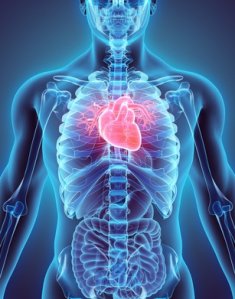
 "After about one week of taking the Q10 supplement I could feel a huge difference," says 23-year old Alan Piccini, who has been suffering from extreme fatigue and muscle aches ever since he was a child.
"After about one week of taking the Q10 supplement I could feel a huge difference," says 23-year old Alan Piccini, who has been suffering from extreme fatigue and muscle aches ever since he was a child. “Taking capsules with co-enzyme Q10 has freed me of the severe side effects of my cholesterol lowering medicine,” Mrs Franken explains.
“Taking capsules with co-enzyme Q10 has freed me of the severe side effects of my cholesterol lowering medicine,” Mrs Franken explains.